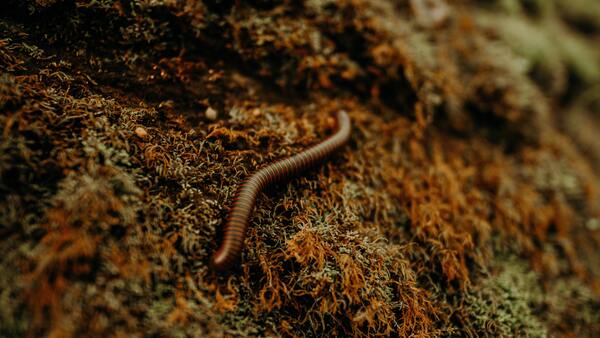Although it may be uncomfortable to think that your dog has worms, it is one of the most common dog health issues. Have you been curious about the most typical canine worm symptoms? How do worms relate to puppy hiccups? You can find out more about worms and puppy hiccups by reading this article.
What Causes Hiccups In Puppies
When a puppy hiccups, its diaphragm is spasming. The diaphragm uncontrollably contracts under strain or irritation. Activities such as eating and drinking too quickly, bursts of energy that create rapid breathing, stress, over-excitement, and tiredness, can all stimulate hiccups in your puppy.
Eating And Drinking
A common theory holds that puppies with too much air in their stomachs experience hiccups. When our puppies eat or drink too quickly, they often gulp air instead of food.
Hiccups may also be caused by food intolerance. The diaphragm and stomach are in close proximity, which may be why your dog’s stomach is uncomfortable and causing spasms.
Exercise And Behavior
Our puppies are prone to hiccups when they are playing. Rapid breathing required for cooling off after a romp around the yard and a sudden change in their energy level can both be to blame.
As puppies are more likely to have higher energy levels than adult dogs, which can contribute to exercise-induced hiccups, this is particularly true for puppies.
A case of hiccups can also result from being too cold or exhausted. In fact, it almost seems as though sleeping puppies hiccup more than awake ones!
Can Worms Cause Hiccups In Dogs
Worms may indicate that your dog has hiccups. When your puppy next sees the vet, it might be a good idea to bring a stool sample if you notice hiccups happening frequently. The most accurate way to find out if your dog’s intestinal tract contains parasites is to use this method.
Make sure your puppy is on a deworming schedule. They should be de-wormed at 2, 4, 6, 8, and 12 weeks as a puppy, and then every 3 months thereafter.
Sentry HC WormX Plus for puppies is a reasonably priced and successful worming option.
How Can Dogs Get Worms
Dogs can contract worms if they eat eggs or larvae that they find in soil, excrement or even fleas that they lick off of their own fur. The worm larva will subsequently hatch and attach to the intestinal wall of your dog, where it can develop into an adult worm.

The transmission from mother to pup is the other possible way for a dog to acquire worms. During pregnancy, worms can cross the placenta, and nursing puppies may consume worm larvae.
More easily recognizable worm species exist. It’s typical to see what looks like rice grains in your dog’s stool if he contracts a tapeworm, for instance. A dog infected with heartworms, on the other hand, may not exhibit any symptoms at all until the disease has reached a more advanced stage, making it more difficult to diagnose.
Treatment Of Worms In Dogs
If unattended, worms can harm your dog’s internal organs, cause unconsciousness, and even cause death. Take your dog to the closest veterinarian’s office if you think it might have worms.
The majority of intestinal worms are simple to treat, and your veterinarian will recommend a medication based on the diagnosis. However, treating heartworm disease can be costly and may call for injections that cost $500 to $1,500 (petmd.com).
The most effective preventive measure is the regular administration of a preventive drug, which typically ranges in price from $6 to $18 per month and can also help prevent other worm infections.
Ensure that this significant expense is included in your monthly pet budget. The cost of de-wormers may be partially covered by a pet insurance plan with preventive care, which will encourage you to continue with regular check-ups and refills.
How To Know If Your Dog Has Hiccups
Dog hiccups can resemble human hiccups in appearance. However, it might appear more dramatic and occasionally terrify owners. The chest vibrates violently when you have hiccups. Additionally, the abdomen rises and falls with each rapid inhalation and exhalation.
The hiccups can be mistaken for other symptoms such as vomiting, coughing, and seizures. even though they typically have characteristics that set them apart.
A dog’s mouth opens and the air is expelled when it coughs. This has a louder, stronger sound than hiccups, and it may be followed by a gag or retch.
Hiccups are a more gentle motion than vomiting. Dogs frequently heave with strong abdominal movements and typically vomit. Instead of the distinctive “hic!” sound, vomiting also makes a retching sound.”.
Given that both can affect a specific area of the dog’s body and are rhythmic, focal seizures can resemble hiccups in appearance. However, whereas hiccups don’t cause mentation changes, focal seizures can.
Read More: What To Do When Your Puppy Gets the Hiccups?
Final Word
A crucial component of being a responsible puppy owner is being aware of potential symptoms of various health conditions. Hiccups are typically just a cute occurrence that you get to enjoy, though. Worms could be the culprit.





